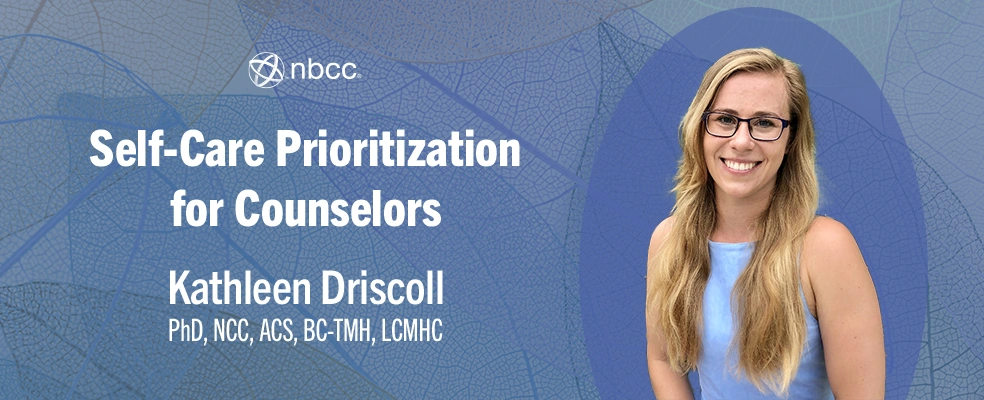
The ability to help clients forge a healthy path toward happiness and resilience can create a sense of fulfillment, but also stress. This is why prioritizing self-care is so critical. After all, to successfully take care of others, we must first take care of ourselves.
“When we invest in self-care and our relationship with ourselves, it shows up in the work we do,” says Kathleen Driscoll, PhD, NCC, ACS, BC-TMH, LCMHC, Assistant Clinical Professor in Seattle University’s Online Clinical Mental Health Counseling Program, and owner of her own clinical practice, KHD Counseling. “However, even though we may know what to do for ourselves, other barriers often stand in the way.”
According to the Substance Abuse and Mental Health Services Administration (SAMHSA), compassion fatigue can be one of those barriers. The physical and emotional impacts of helping others can present themselves through burnout or secondary traumatic stress. For example, when hearing about a traumatic experience, it may remind a counselor of a personal trauma or just leave them feeling hyper-alert all the time.
Dr. Driscoll also acknowledges the stress of having to perform, environmental factors in the workplace, and social expectations as getting in the way of prioritizing oneself. Communication is a common theme for her in helping overcome these barriers.
“When I solely worked in private practice, I was my own boss and had everything weighing on my shoulders. I had no one else to communicate with. Being supported now in the university setting has proved extremely helpful in prioritizing myself,” says Dr. Driscoll. “Even if it means I need to step out of my comfort zone, communicating my needs to my supervisor and enlisting the help of others on my team has been crucial.”
SAMHSA cites signs of fatigue through various symptoms, including helplessness, disorientation, cynicism, irritability, headaches, and muscle tension. To overcome this fatigue, they recommend creating a self-care plan that addresses each of the four core components of resilience: adequate sleep, healthy eating, regular physical activity, and active relaxation.
In addition to these conventional practices, Dr. Driscoll chooses to lean into her personal relationships and put her creative juices to work, both which “fuel her soul.” “When I’m feeling dimmed, I know I need to focus on myself to feel alive again.”
The guilt a counselor can feel in taking time for themselves when they perceive their clients’ needs to be greater may manifest itself more in today’s world. The increasing perception that fatigue is a marker for success also proves challenging. “There is more conversation today about why self-care is so important, yet we often struggle to put it into practice,” says Dr. Driscoll. “We need more old school congruence. It should not be as complex and contradictory.”
Supervisors should also ensure their counselors feel supported in prioritizing their own self-care. SAMHSA suggests providing peer support groups and debriefing sessions for counselor teams, encouraging breaks and staying in touch with loved ones, and connecting their counselors through team events and buddy systems.
While it is not easy to put one’s own self-care above the demands of such an essential career, counselors should view it as an investment, one that pays huge dividends to both the well-being of their clients and themselves.
Kathleen Driscoll holds a PhD in Counselor Education & Supervision and currently serves as an Assistant Clinical Professor in the Online Clinical Mental Health Counseling Program at Seattle University. She also practices therapy and provides consultation services at her telehealth private practice, KHD Counseling. Clinically, Dr. Driscoll focuses on the use of Gestalt and existential perspectives while integrating trauma-informed care and interventions. Her caseload typically involves those who have experienced family or relational trauma. Dr. Driscoll’s consultation work involves public speaking on mental health and wellness, counseling-related research presentations, helping counselors build their own private practices, and supporting new counselors in developing their professional identity.